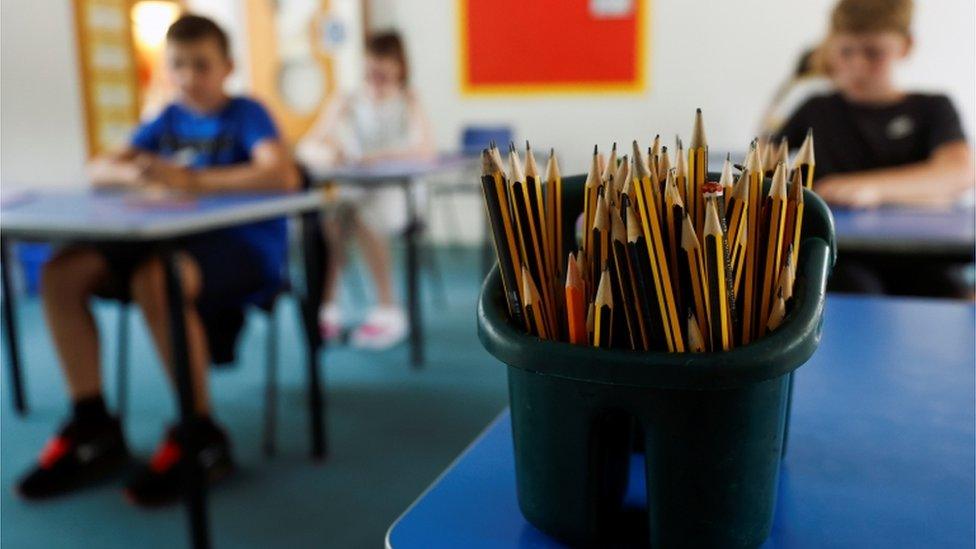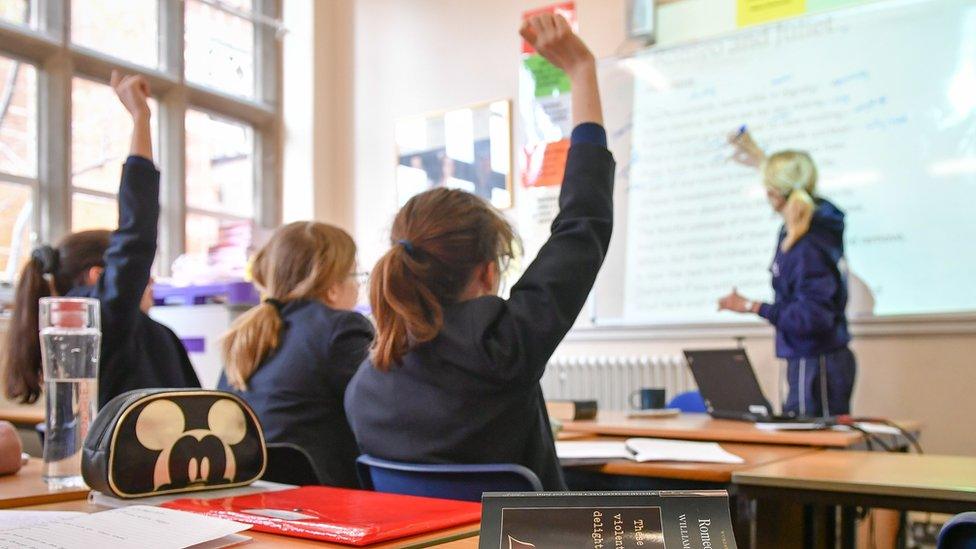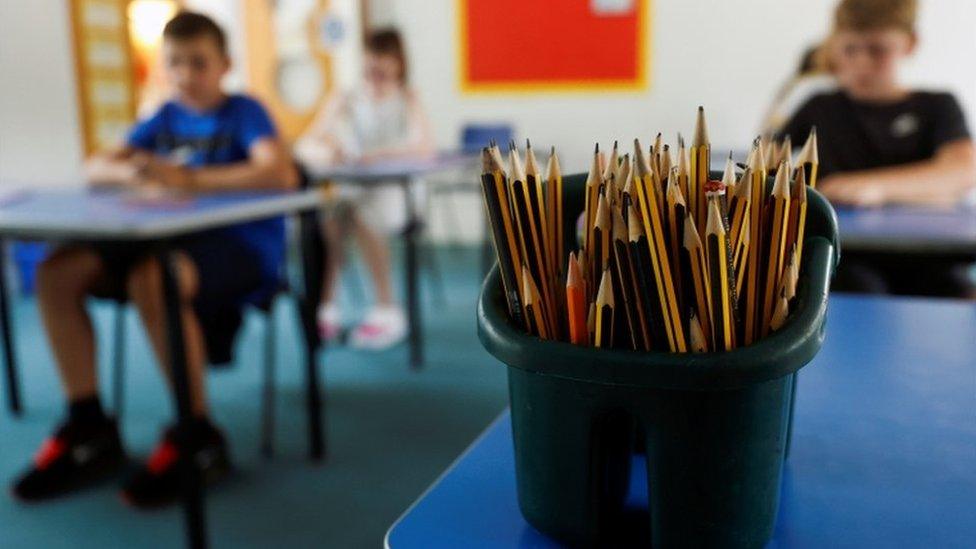NI Education Authority facing risk over £300m deficit
- Published

The Education Authority is responsible for the bulk of education spending in Northern Ireland
The Education Authority (EA) is facing a "serious degree" of financial risk and a rising budget deficit of £300m.
That is according to the most recent minutes of one of its committees.
The EA is an arms-length body of the Department of Education (DE) and funds schools, transport, meals, special educational needs (SEN) and youth services.
The committee was also told rising energy costs may force schools to close due to falling room temperatures.
Inflation and pay pressures were also cited as some of the factors impacting the EA's budget.
With a budget of more than £2bn it is responsible for the bulk of education spending in Northern Ireland.
School closures
In August, the EA was estimated to be facing a potential financial gap of £200m in 2022/23, but that estimate has now risen.
Members of the EA's Resources and People Committee received a briefing from the authority's director of finance, Seamus Wade, on 6 October.
"He reported that, including earmarked pressures, the overall funding gap was estimated to be £301.387m," the minutes said.
"The funding gap reflected approved inescapable pay and price pressures, approved inescapable demand pressures, and committed expenditure."
For example, non-teaching staff in schools in Northern Ireland are set for a £1,925 pay rise following a UK-wide agreement with unions.
Increased funding to support children with SEN also represents more than half of the additional budget pressures the EA is facing.
The money that the EA spends on SEN is expected to be about £450m in 2022-23.
That includes about £208m on children with SEN educated in mainstream schools, £157m on special schools, £42m on transport and £35m on support like classroom assistants.
Schools and the EA are also facing a significant rise in energy costs in 2022/23.
A member of the EA's Resources and People Committee "expressed concern that the rising energy costs could cause further disruption to schools over the winter months by causing schools to close on account of falling room temperatures," according to the minutes.
'Serious degree of risk'

Previous research has suggested that Northern Ireland spends less on each school pupil's education than any other part of the UK
The committee said there was a "serious degree of risk to EA's financial position".
Some voluntary grammar schools and grant-maintained integrated schools - who have relative autonomy over their own budgets - are also facing additional budget pressures, according to the minutes.
Mr Wade told the committee that the Department of Education was "fully informed of the scale of financial challenge facing EA".
The authority is also facing a rise of about £4.2m in the cost of providing school meals, a separate meeting of its board has been told.
Previous research has suggested that Northern Ireland spends less on each school pupil's education than any other part of the UK.
In England, the head teachers' union, NAHT has warned that many schools are considering cutting teachers or teaching hours to save money.
Related topics
- Published8 November 2022

- Published23 August 2022
